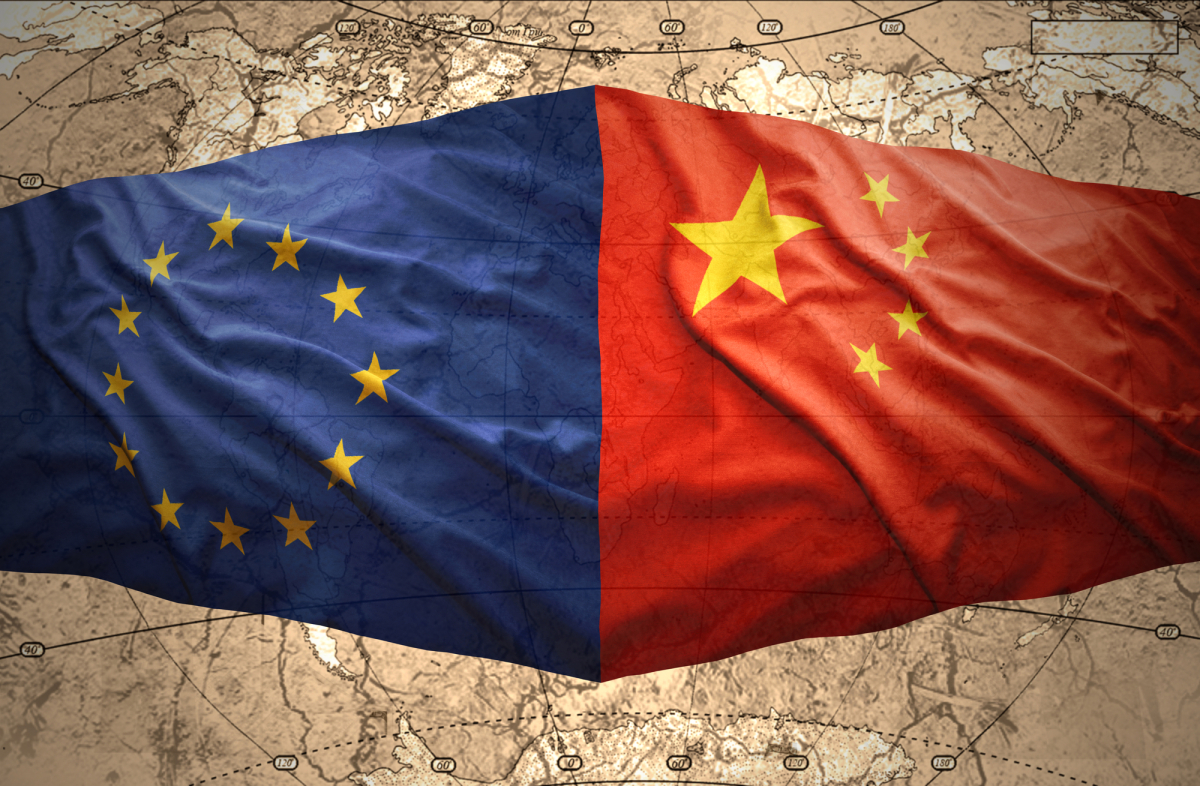Europe must be less defensive about Chinese investment

Is Germany just a department store with a clearance sale for China? Leifeld, 50Hertz, Grammer — hardly a week goes by without a German company being targeted for Chinese takeover. While mergers and acquisitions in general rarely arouse public interest, everyone gets riled up when China is involved. Is that because of China — or because of Europe?
Here are the facts: China is Germany’s most important trading partner. Last year, Germany exported €86.2 billion ($98 billion) worth of goods to China, nearly tripling over the past 10 years. In return, Germany imported goods worth €100.5 billion from China. The mutual dependence and benefits are huge.
According to an EY study last year, Chinese companies invested $57.6 billion in takeovers and investments in Europe. Germany accounted for the largest share, $13.7 billion, and the rate of investment is up in the first half of 2018. German companies with global reputations as technology leaders are prime pickings for Chinese buyers.
But according to an IW study, the Chinese share of all foreign acquisitions in Germany in 2017 was just 6.6 percent — less than one-third of the American share. German direct investment in China is still significantly higher than the reverse. German companies’ experiences with their Chinese owners have been positive so far: The company enters the Chinese market, management keeps its entrepreneurial freedom, and worker representatives appreciate the long-term orientation.
Chinese interference?
The preoccupation with China is not only because of its size. In contrast to European and American companies, interest from a Chinese company arouses concern that the Chinese government is exerting direct or indirect influence.
The central criticism focuses on the charge that China’s state-controlled economic system exploits Western openness. According to this view, Chinese companies can act freely here while German companies must deal with curbs and restrictions in China. In this context, the annual meetings between China and 16 Central and Eastern European countries are considered a threat to political unanimity in decisions at European level.
And China is no longer just copying business models but has become the world leader in select areas. If China’s own developments take too long, they just acquire the missing expertise. Beijing’s ambitious strategy of becoming the world’s leading economy in the first half of the 21st century is no longer a pipe dream. Chinese giants such as Baidu, Alibaba and Tencent seem to be the only internet companies that can compete with the American monoliths Google, Amazon, and Facebook. European competitors in this context do not exist.
What Europe should do next
China’s combination of political and economic power scares Europe, as does the vague fear of being left behind. So Europe must become better and stronger. It must create the conditions for its companies to be more successful in an era of platform economies. The core condition for this is scalability in a market of more than 500 million people because here the winner takes all.
Economic policy must allow companies setting up shop in one EU member state to roll them out to all other member states without further approvals — and get cross-border financing via venture capital. Only then can they reach the critical mass that is important for their survival and prosperity beyond Europe. The finalization of the internal market in practice is the critical success factor to Europe winning in future-oriented sectors. The European discussion could then veer away from fiscal issues and towards common issues of the future. And it would be easier to show EU member states with increasing success a clear alternative to enticements outside the bloc.
The second consideration is the question of new industrial policy or even state subsidies, as is required for artificial intelligence. But with caution, because these actions can do more harm than good. Experience shows that while the government may not be worse than the market in finding new technologies, it often fails to hit the brakes in the face of obvious failure. State support must happen within a clearly defined framework, especially in the promotion of new public goods such as digital services and platforms. Significantly increased funding of top-level research at a European level would also be a sensible way forward.
Thirdly, Europe, together with the United States, must continue to make its demand for reciprocity clear in talks with China. The first successes are apparent. The abolition of China’s requirement for foreign manufacturers to enter into joint ventures is an important step — and BMW is the first beneficiary of the new regulation. But there’s still a long ways to go in terms of real equality of opportunity. The more Germany and Europe can point to their own practices as a good examples to China, the more they will succeed.
Developing resilience
All these tactics can make Europe more resilient and increase its prosperity. But they don’t answer the question of how to deal with Chinese takeover bids. Above all, we must have clear rules. The 50Hertz case, in which the bidder wanted to acquire a portion of the company remained below the legal minimum for a government review, must remain an exception. The government, with the help of German development bank KfW, intervened anyway.
Nor does it make sense, as with Kuka, to try to win German companies against their will. Such intervention must lie with the state and not with individual companies. It is not their job or in their interest to act politically. Their economic disadvantages in China would be too great. Rather, it is a matter of defining a clear minimum threshold for investment reviews and then carrying out the review according to clear criteria. Not all of the burden can be put on Germany’s Foreign Trade and Payments Act.
If we want to prevent minority shareholders from having an excessive say, we need to think about rules to improve corporate governance. If one considers energy networks as critical infrastructure, then one can establish rules for their operation, with clear, tough sanctions for infringements.
With China’s growth, Europe and Germany are facing great new opportunities and challenges. Economic openness and cooperation, the cornerstone of prosperity, must be maintained and strengthened without the state renouncing its right to intervene in precisely defined individual cases with clear rules. This is the basic principle of the social market economy.
Europe must act in unison and build on its strengths. The recent experience in the trade dispute with the US shows what we can achieve.
This article was originally published by Handelsblatt, August 17, 2018.
